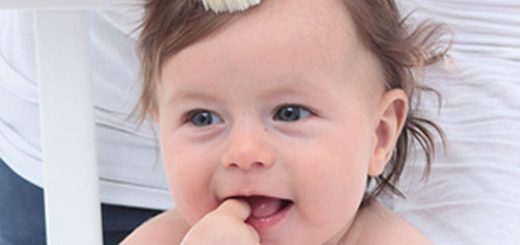Newborn Baby Skin Care Tips
Skin of the newborn differs from that of an adult in several ways. It is more susceptible to trauma and infection and requires special care. Certain principles of skin care have to be emphasized to the mother or caregiver such as gentle cleansing, adequate hydration and moisturizer of the skin, preventing friction and maceration in body folds, and protection from irritants and bright sunlight.
The initial bath in full term infants can be given once the baby’s temperature has stabilized and the infant is thermodynamically stable. All soaps, cleansers, and syndets should be used infrequently during the newborn period and it is better if their use is limited to groins, axillae and napkin areas. The use of emollients on newborns should be limited in warm weather.
A newborn baby’s skin is very sensitive and susceptible to becoming dry and irritated. Daily skin care will keep your baby comfortable and clean, without irritating her sensitive skin. The best time to care for your baby’s skin is either when you are dressing the baby in the morning, changing the baby, or getting ready to put the baby to bed for the night. Some babies find their skin care routine or bathing stimulating, others find it relaxing. See what works best for your baby and time their skin care accordingly. While your baby won’t need a bath every day, your baby will need skin care every day.
Skin Care for Newborns:
Soap:
Though plain water usually does the job, occasionally a small amount of soap may be required. If so, use a mild soap containing olive, coconut, or palm oil and possibly herbal extracts such as calendula. (All pediatricians recommend avoiding antibacterial soaps.) After soaping, replenish the skin’s oils by using a soothing oil or lotion containing saturated oils such as coconut or sesame, with herbs such as calendula or arnica. Few babies are sensitive to these.
Bubble Baths:
Many bubble bath products for young children are based on detergents that destroy beneficial bacteria and harm the baby’s acid mantle. Furthermore, bubble baths are a leading cause of vaginitis and urinary tract infections in infants. This problem has become so prevalent that the Food and Drug Administration has ruled that bubble baths for children must carry warning labels advising parents against excess bathing of their children. If you wish to scent your baby’s bath, add a bit of lavender oil (5-10 drops only) to the water. (Lavender oil is not to be taken internally.)
Shampoos:
Shampooing schedules should be determined by the amount of hair your baby has and how oily it is. Most babies with thin hair don’t need to be shampooed all that often during their first year. (Only do so as needed.) When you do shampoo, a mild shampoo is best. You can recognize them by what they don’t contain: synthetic fragrances, artificial colors, or highly allergenic and irritating preservatives including quaternium 15, imidazolidinyl urea, and parabens.
Lotions and Oils:
Massaging lotions and oils into your baby’s skin can relieve irritation. But anything you use should be free of petrochemicals (especially mineral oil), which are themselves irritants. Also, look for healing herbs in your baby’s lotion or oil.
Chamomile and aloe have a long history as soothing and moisturizing ingredients and have a good record of safe use in cosmetics. Other healing herbs to look for in lotions and oils (and other baby products) include calendula, marigold, and arnica. The same guidelines for finding gentle shampoos apply to lotions: avoid artificial colors, DEA, and TEA, and seek out products that use gentle preservatives.
Many baby lotions contain lanolin, a fatty substance obtained from sheep wool and used as a base for cosmetics. Experts advise against the use of lanolin unless the company guarantees it is pesticide-free. In surveys done by the Environmental Protection Agency, much of the commercial lanolin used in baby products was found to contain relatively high concentrations of pesticides such as DDT, lindane, and diazinon. According to the National Research Council, these chemicals are readily absorbed through the baby’s skin. Each of them can damage the nervous system, and some of them are cancer-causing.
Baby Powder:
Most powders contain tiny particles that irritate the skin, says Stave, and many contain fragrance, a leading cause of allergy and irritation. Under all circumstances, avoid baby powders containing talc. Several studies have linked talc to cancer.
The only places you might need to use a little powder (never talc) are in the creases of the baby’s skin the underarms, genital area, and neck, says Gordon. He recommends scent-free powders made with cornstarch or bentonite clay. These are available in health food stores.
Newborns Skin Care with Natural Ingredients:
As for a while now as your child is not allergic to a small amount of herbs, skin treatment offerings assembled investing in expected substances are mostly guaranteed for the sensitive skin of the child. For moisturizing the delicate skin of your baby, you can use round almond oil or olive oil. You can request compressed lonely time of cocoa butter to your baby’s have to deal with and body.
Diaper foolish and baby acne will be treated amongst aloe vera gel. You can use zinc oxide cream for healing diaper rash. Talcum powder are able to not be safe and sound for your baby. Respiratory questions would appreciate if your baby inhales the healthy grains of powder. You can replace talcum powder surrounded by cornstarch-based powder.


